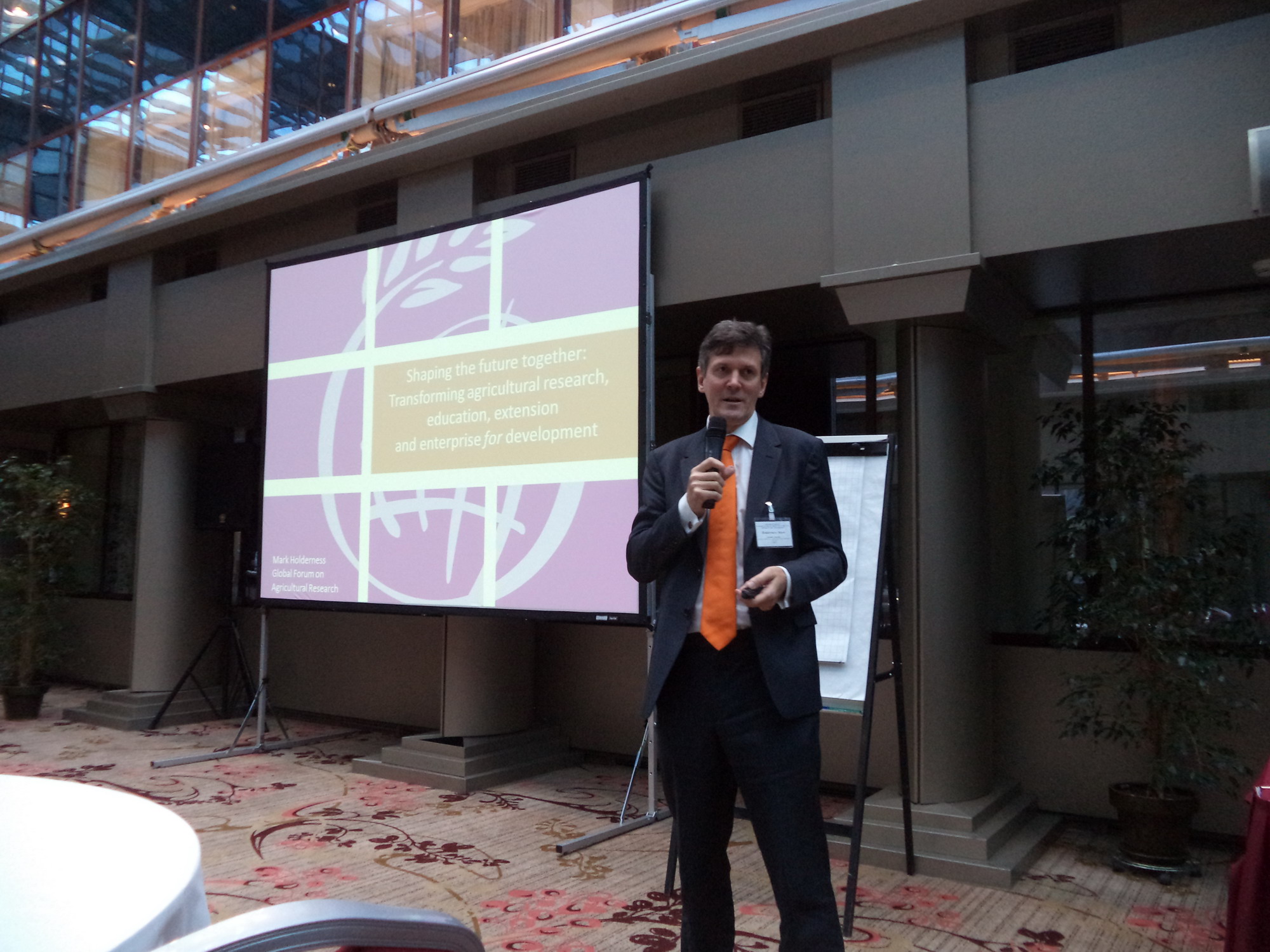
Moscow, Russian Federation
8-20 November 2013
8-20 November 2013
Mark Holderness, GFAR Executive Secretary, was invited as a Moderator for the Network development meeting of the Eurasian Centre for Food Security (ECFS) in Moscow, Russian Federation. Responding to the 2008 food price crisis and the L’Aquila Food Security Initiative, the Russian Federation has increased its commitment to global food security concerns through multilateral channels, including the establishment of the new Eurasian Center for Food Security (ECFS) for catalyzing agricultural development in the region. ECFS is based at Lomonosov Moscow State University and is developed in partnership with the World Bank and with FAO.
The meeting involved around 50 participants, comprising senior figures from Russian research institutions and Universities and from agricultural research and development institutions from Central Asia/Southern Caucasus. Discussions were supported by international partners from the World Bank, GFAR, FAO, CACAARI, ICARDA, IFPRI, the EC, the German University of Jordan and others.
The ECFS will provide research and advisory services on food security matters to beneficiaries in the Eurasian region. ECFS is expected to evolve into an internationally recognized agricultural research centre of excellence. It is intended that the Centre will provide analytically-based (policy and technical) recommendations and associated technical assistance, with the goal of increasing Russia's contribution to Eurasian and global food security.
The meeting’s content built on from that of the G20 Meeting of Agricultural Chief Scientists, held in Moscow in July 2013 under Russia’s Presidency of the G20, in which GFAR Secretariat and stakeholders played an important part. The meeting began with a Networking day to further develop the Eurasian Food Security Network, by assessing food security challenges and building on best practices existing across the globe.
Prof. Sergey Kiselev, Director of ECFS, set the context for the meeting: “By bringing together many of our Eurasian neighbors and regional and international experts for this conference we hope to build a strong network of expertise to address the critical food security challenges faced in the region, and develop new collaborations with regional and international organizations to develop suitable education programs to address food security needs in the region and undertake timely and relevant research on pressing challenges.”
Dr Holderness gave a keynote presentation ”Shaping the future together: Transforming agricultural research, education, extension and enterprise for development”, summarizing the rationale for the changes agreed in the GCARD Road Map and now being taken up by the wide range of stakeholders delivering the GFAR Medium Term Plan. He also moderated the session relating to international collaboration for the ECFS network.
The “Learning” day then sought to identify key educational needs of food security experts in the region. These will then serve as a basis for the development of new educational programs on food security issues by ECFS, including distance learning programs. International advisers present developed and set out a summary of wider learning and capacity development needs and contexts for developing scientific careers and research management roles.
The “Soil” day of the Conference successfully launched the Eurasian chapter of the Global Soil Partnership. ECFS will act as the Secretariat of the Partnership. Ronald Vargas, Secretary of the EC-supported Global Soil Partnership (hosted by FAO in Rome), highlighted the importance of this major international initiative ‘for improving global governance of the limited soil resources of the planet in order to guarantee healthy and productive soils for a food secure world, as well as sustaining other essential ecosystem services’. The Eurasia Sub-regional Soil Partnership will provide a mechanism for implementing the Global Plans of Action in the region in close consultation with Member countries and partners, towards an action plan for sustainable soil management and the reversal of alarming soil degradation trends in Eurasia.
